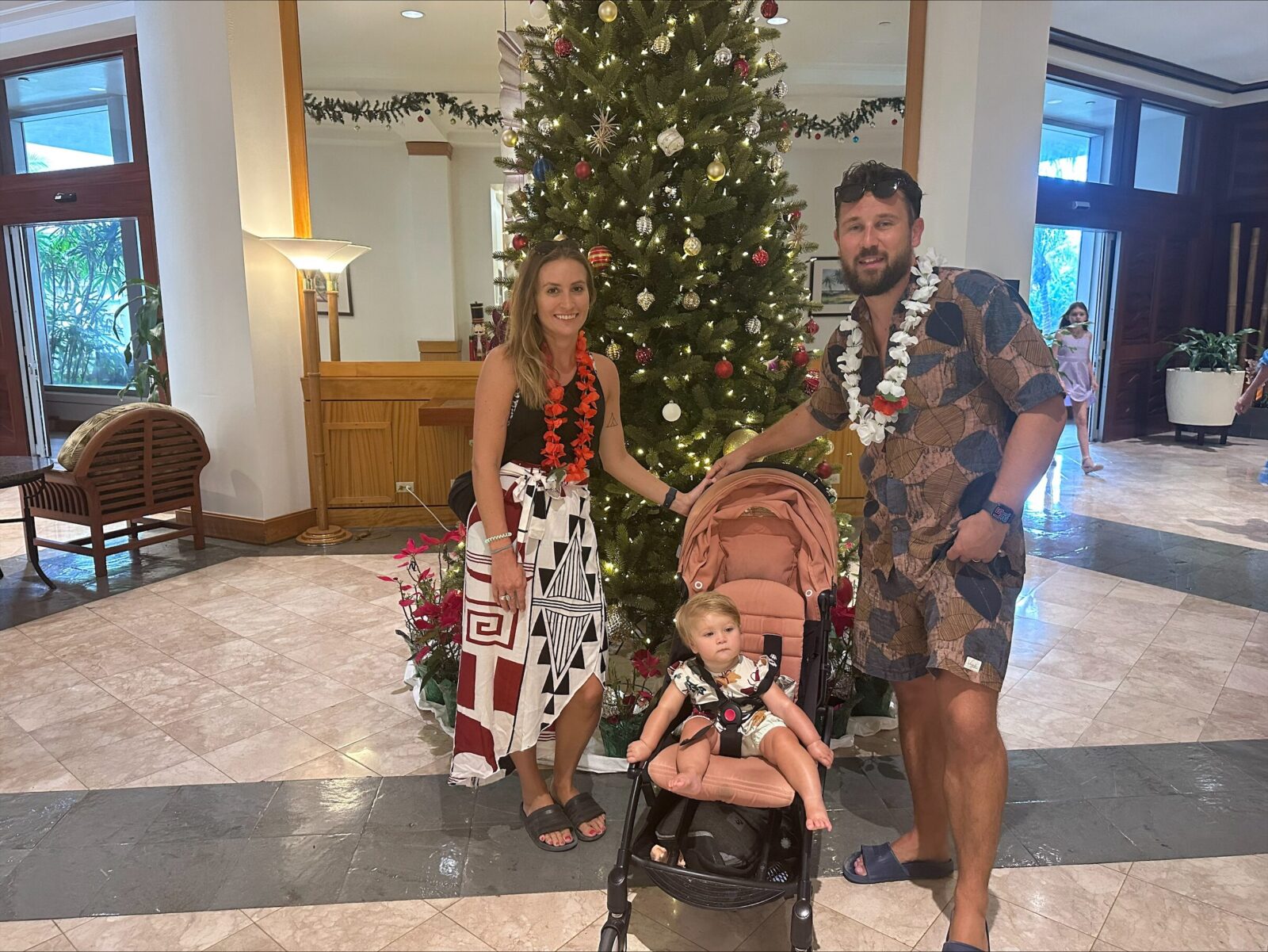Miranda won’t mind me sharing (I’ve checked) that, when she was pregnant with Winnie, she really struggled both mentally and physically with the whole thing. It was a difficult time, particularly when friends, family and the world looking in are understandably full of joy and excitement for you.
The key thing that gave Miranda a sense of the same joy that others felt for us, was the idea of us taking some time away and travelling with our baby. We talked in depth about what it could look like and where we would like to go.
Come February, last year when Winnie arrived safe and sound, our world was turned upside down by the difficulty of caring for a newborn and the plans of travelling were well and truly put on the back burner. As we got through to May, and we started to benefit from a routine, we surfaced the idea of pursuing the travelling dream that we had spent a long time thinking about.
We knew we had a short window to travel with Winnie in the way we wanted. We didn’t want to take a toddler who was on the move, but we also needed to make sure she was old enough to have her jabs and minimise any health risks. We knew that six to ten months was the window and so we had to move fast.
The whole experience of planning the trip and then pulling it off, has left me with three financial planning lessons that I am sharing with you today.
1. Financial planning 101 – the budget!
Now this might seem obvious but stringently budgeting for a trip like this is super important and, for me, not that much fun.
However, just like budgeting for your own family expenses for the year ahead or working out what you want to spend in retirement, the best place to start is to think about what is most important to you and what you want to do.
Knowing that we would have a young baby with us and a limited pot of savings to spend, we needed to be intentional about what we spent our money on. We knew that safety and security was of paramount importance, as was ensuring we had somewhere for Miranda and I to enjoy the evenings, knowing Winnie would be asleep from 7pm.
So we decided to prioritise our accommodation. Tilting the budget to give us more towards this meant we knew we were staying in lovely places, in safe areas with plenty of space for us to live in for the time we were there. The compromise was that we weren’t going to have as much budget for things we’d typically like to do, like eating out in the evenings.
Importantly, Miranda and I crafted the budget together as a team. I typically manage our family finances and Miranda has less interest, but it was important that we were both in this together, making the right decision for us as a family to ensure we had the best time without worrying about money.
This struck a similar chord for why we insist on both partners attending Annual Planning Meetings. Any plan for two people that is driven only by one party, is at risk of going seriously wrong. Collaborating on one exciting joint venture always leads to better outcomes.
2. What happens if it all goes wrong?
I’m an enthusiastic optimist. It’s a good way to live, but it doesn’t always help when things go wrong. Particularly when there were obvious things that I could have done to mitigate any disasters.
We knew that Winnie could pick up all kinds of bugs, viruses and lurgies on this trip and we wanted absolute peace of mind that we could cover the cost of any medical expenses that we might incur in an emergency. As we started to understand the costs involved in private medical care when abroad, we soon realised we needed to insure ourselves to the absolute maximum to take any care of anything that could go wrong with our wellbeing and health.
Insuring against unforeseen, low probability but high impact situations, often feels alien to us. ‘I am not getting life insurance, because I am not going to die any time soon’ is a mindset many have. Taking out maximum insurance hurt when paying the bill, but the peace of mind it gave when travelling was a value-add that is hard to put into a number.
Much like all of our clients’ financial plans, we also needed a cash buffer contingency. What if we needed to fly home for an emergency or pay for something that the insurance doesn’t cover or won’t pay back for a number of weeks? We had a small additional buffer set aside for an emergency, that was above and beyond our original budget. We didn’t plan to spend it, but it was there in case we needed to.
Hoping for the best but planning for the worst is often a key component for the success of any financial plan.
3. Being nimble and embracing ambiguity
You have to accept that any plan isn’t going to work out exactly as you expected. You cannot predict the future, nor can you account for things going wrong that are outside of your control.
Despite our best efforts to research everything, speak to friends who had travelled to these places and create a plan that we felt was flawless, the reality is that we hit a number of problems that threw things out, cost us more money and created some difficult moments.
Take our arrival at the airport in Bali as we flew to Australia, for example.
“Passports please sir”… “and your Australian visas”…
“Errr, our what sorry?”.
At this point I knew that I had missed something key to get us on this flight. We had to apply for visas on the spot, but the system was down, and they wouldn’t let us board. It was 9pm and Winnie was kicking off and we had to book a hotel, pay to change our flights and at the time, it felt like the world was against us. But we always knew things would go wrong and we quickly decided to laugh it off, use our contingency budget and readjust the plan.
Travelling exposes you to the unpredictable nature of life, and being flexible is essential. You may encounter unexpected changes in plans, unforeseen circumstances that require adaptability or just make a simple mistake that has an immediate impact.
This lesson is crucial in financial planning as well. Markets fluctuate, and life circumstances change. Being adaptable with your investment strategy, retirement plans, and overall financial goals allows you to navigate through various economic climates and life stages.
In summary, the experiences gained from travelling the world with our family can offer valuable insights into budgeting, planning for any mishaps or disasters, and adaptability. Applying these lessons to your financial planning can help you build a resilient and well-balanced financial future for you and your loved ones. I’d highly recommend taking a baby around the world and travelling in the way that we did, we have stories for days and a family bonding experience we won’t replicate ever again.
And just to be clear, you do need a visa to get into Australia.







